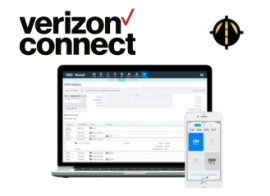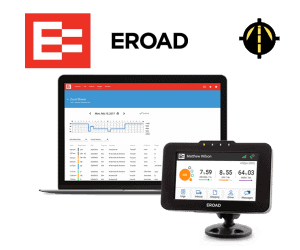If you’re involved in fleet management, the DOT Medical Card is a term that likely rings a bell. But do you know what it stands for, what it implies, and why it’s so crucial in the trucking industry?
Continue reading to learn about the ins and outs of the DOT Medical Card.
What is a DOT Medical Card?
In simple terms, a DOT Medical Card, or Medical Examiner’s Certificate (MEC), is a must-have for any commercial vehicle driver. It acts as a certification that a driver is both physically and mentally fit to operate large vehicles safely. This card is crucial because, without it, a person cannot legally hold or renew a commercial driver’s license (CDL).
Why is this card so significant? Well, consider this: as of 2023, the U.S. has over 3.5 million truck drivers. If these drivers were not regularly evaluated for fitness, the risks on the road would significantly increase. The DOT Medical Card ensures that every commercial driver is reviewed and cleared for health, supports road safety, and reduces the risk of accidents due to medical issues.
This certification is not just a one-time requirement but needs renewal at intervals prescribed by the DOT. This ensures that drivers maintain their health standards as long as they are behind the wheel. Keeping up with the latest regulations and health standards helps promote safer driving conditions and reduce potential liabilities for fleet operators.
Understanding and managing DOT Medical Cards is essential for maintaining legal compliance and ensuring that your drivers are always ready and capable of performing their duties safely. This guide aims to provide you with a thorough overview of how to manage this requirement effectively within your fleet.
The Importance of DOT Medical Card
The DOT Medical Card acts as a beacon of safety, ensuring that every commercial motor vehicle (CMV) driver on the road is medically qualified and safe to drive. This reassurance extends from fleet managers to the general public, underscoring the commitment to maintaining high health standards within the trucking industry.
Benefits Beyond Safety: Advantages of the DOT Medical Card
Promotion of Healthier Lifestyles: The stringent health requirements for obtaining a DOT Medical Card encourage drivers to lead healthier lifestyles. This includes adopting a better diet, engaging in regular exercise, and undergoing consistent medical check-ups, which benefits their personal and professional lives.
Increased Professional Opportunities: Possessing a valid DOT Medical Card is a significant advantage in the transportation job market. Companies often prioritize hiring drivers who are proactive about their health, viewing them as more reliable and responsible, potentially leading to better job opportunities and higher wages.
Peace of Mind: Drivers with a valid DOT Medical Card gain peace of mind, knowing they have met the necessary health standards to drive safely. This can lead to improved mental focus, reduced stress levels, and enhanced overall well-being while on the road.
Economic Benefits for Fleet Managers: Fleets that ensure all drivers maintain valid DOT Medical Cards are often considered lower risk, which may result in lower insurance premiums. These savings are a direct result of demonstrating a commitment to safety and compliance, reducing potential costs related to accidents and health issues.
What Happens if You Get Pulled Over Without a DOT Medical Card?
Driving without a valid DOT Medical Card can lead to severe penalties, including substantial fines for both the driver and their employer. Such non-compliance can escalate legal and financial consequences, especially if the driver is involved in an accident.
What Fleet Managers Need to Know
For fleet managers, ensuring all drivers’ DOT Medical Cards are up to date is critical. Important practices include:
 Maintain a detailed database
Maintain a detailed database
Continuously monitor and update a comprehensive database of drivers, noting the expiration dates of their DOT Medical Cards to prevent any lapse in compliance.
 Send reminders
Send reminders
As a fleet manager, it’s essential to proactively remind drivers of upcoming renewal dates for their DOT Medical Cards. Regular reminders help maintain compliance and avoid the risks associated with expired certifications.
 Educate drivers
Educate drivers
Educating your team about the significance of the DOT Medical Card is crucial. Make sure they understand the potential consequences of not maintaining a valid card, including legal and safety risks.
 Encourage regular health check-ups
Encourage regular health check-ups
Beyond the DOT medical examination, encourage drivers to undergo regular health check-ups. This proactive approach helps drivers manage potential health issues and maintain overall well-being, which is crucial for safety on the road.
 Where to Find a Medical Examiner’s Certificate
Where to Find a Medical Examiner’s Certificate
Checking the status of a DOT Medical Card is straightforward. While some states offer online checks, not all do. If online access isn’t available, contacting the issuing medical examiner or facility directly is the next best step.
Medical exams required for the DOT Medical Card are carried out by certified medical professionals listed on the FMCSA National Registry of Certified Medical Examiners. This registry ensures that all examiners have met specific standards and are qualified to conduct thorough and standardized examinations.
 Details of the Examination Process
Details of the Examination Process
Imagine a driver stepping into a medical office, equipped with their CDL and medical records. The examiner reviews the driver’s medical history, checks vision and hearing against set benchmarks, and conducts a thorough physical examination. Successful candidates leave with their DOT Medical Card in hand, certified to drive safely.
Some drivers might receive cards valid for less than the standard 24 months if they have conditions like high blood pressure that require closer monitoring. This tailored approach ensures that all drivers meet the physical requirements necessary for the safety of themselves and others on the road.
The Evolving Landscape of DOT Medical Cards
Navigating Post-Pandemic Protocols: The COVID-19 pandemic introduced temporary leniencies in regulations, but as the world returns to normal, these exceptions have ceased, and the standards for obtaining a DOT Medical Card are back to their strict norms.
Stay Updated with New Forms: The landscape of DOT Medical certification is dynamic, with new forms like MCSA-5875 and MCSA-5876 now in use until December 31, 2024. These forms reflect the DOT’s adaptability and commitment to maintaining high safety and health standards across the trucking industry.
Guidance Customized to Your State: The FMCSA recognizes the diversity of regulations across different states and offers state-specific guidelines for medical certification. This ensures that regardless of where a driver operates, they can access accurate and relevant information to maintain compliance.
Frequently Asked Questions
Who needs a DOT Medical Card?
All drivers operating commercial motor vehicles (CMVs) on interstates or carrying certain types of loads or passengers must have a valid DOT Medical Card to ensure they’re physically and mentally fit for the job.
How often do I need to renew my DOT Medical Card?
A DOT Medical Card is typically valid for 24 months. However, drivers with certain medical conditions, like high blood pressure, may need to renew more frequently to ensure ongoing compliance and safety.
Can any doctor perform the DOT medical exam?
No, only medical professionals listed on the FMCSA’s National Registry of Certified Medical Examiners are authorized to perform DOT medical exams. This ensures the exams are thorough and standardized.
What if I fail the DOT medical examination?
Failing the exam means you cannot legally operate a CMV. However, you can address the disqualifying health issue and retake the exam once the conditions are managed or improved.
Are the DOT medical exams standardized across all states?
Yes, while the examination is standardized, the submission process for the Medical Examiner’s Certificate can vary. Always check the FMCSA website for state-specific guidelines.
What happens if I’m operating without a DOT Medical Card?
Operating a CMV without a valid DOT Medical Card can lead to significant penalties, including fines and suspension of driving privileges.
Does having a DOT Medical Card affect insurance premiums?
Yes, maintaining a valid DOT Medical Card can positively impact insurance premiums. Insurers often consider compliant drivers as lower-risk, which may reduce insurance costs.
Can I use a DOT Medical Card from one state while driving in another?
Yes, a DOT Medical Card is federally recognized and valid across all states, simplifying compliance for interstate drivers.
Wrapping Up
Understanding the importance of the DOT Medical Card is crucial for anyone involved in fleet management or commercial driving. This card is not just a regulatory requirement—it’s a fundamental component of road safety, ensuring that drivers are capable of operating large vehicles without risking their health or the safety of others.
The DOT Medical Card serves as a benchmark for driver health and readiness, significantly reducing the risk of accidents caused by medical conditions. For fleet managers, this means less downtime and potentially lower insurance premiums due to the reduced risk of accidents and health-related issues.
Remember, the next time you see a truck breezing down the highway, there’s a comprehensive evaluation process behind the scenes ensuring that journey is as safe as possible. So whenever your renewal date is nearing or if you’re entering the commercial driving field, prioritize obtaining or renewing your DOT Medical Card. Safe travels and smooth management are easier to achieve when you’re fully compliant with DOT health standards.
For more details on navigating DOT medical requirements or to ensure your fleet stays compliant, don’t hesitate to consult the latest guidelines or reach out to certified medical examiners. The road ahead is clearer when you’re well-informed and fully prepared.



 Maintain a detailed database
Maintain a detailed database Send reminders
Send reminders








 Answer 5 simple questions to request a
Answer 5 simple questions to request a